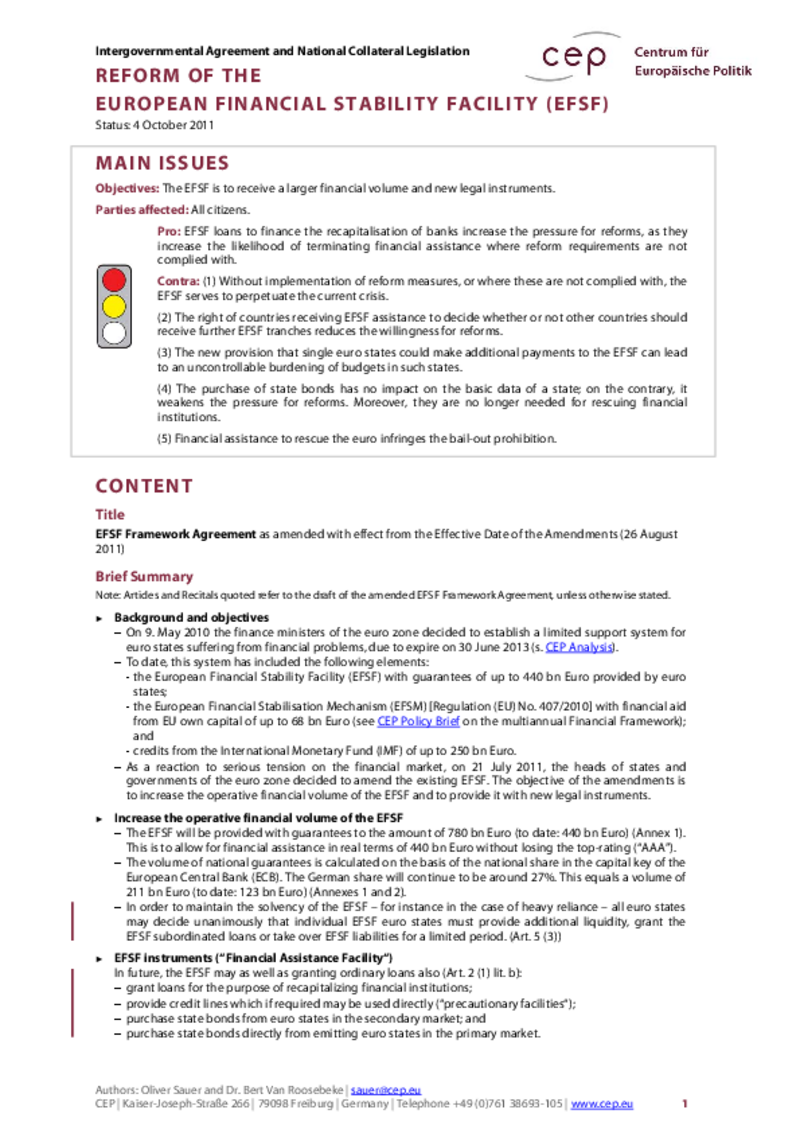
EU Treaties & Institutions
Reform of the European Financial Stability Facility (EFSF)
cepPolicyBrief
If EFSF assistance is provided without being linked to fundamental reform requirements, or if these are not complied with, the current crisis will be further perpetuated through the EFSF. Countries receiving EFSF assistance should not be entitled to decide on the payment of further tranches to other countries. Additional subsequent payments made by individual euro states to the EFSF could lead to uncontrollable burdens on public budgets in the affected states. EFSF loans to recapitalise banks increase the pressure for reforms. The purchase of state bonds has no impact on the basic data of a state; in fact, they weaken the pressure for reforms. They are not necessary in order to rescue financial institutions as they can be rescued directly in future. Financial assistance to rescue the euro infringes the bail-out prohibition.



